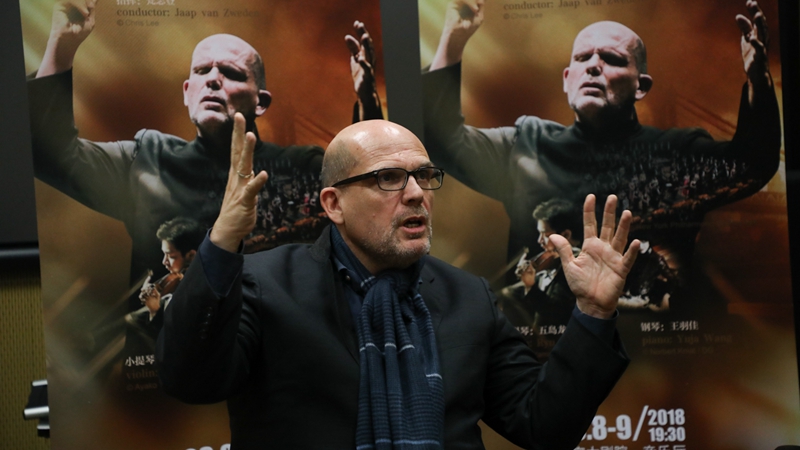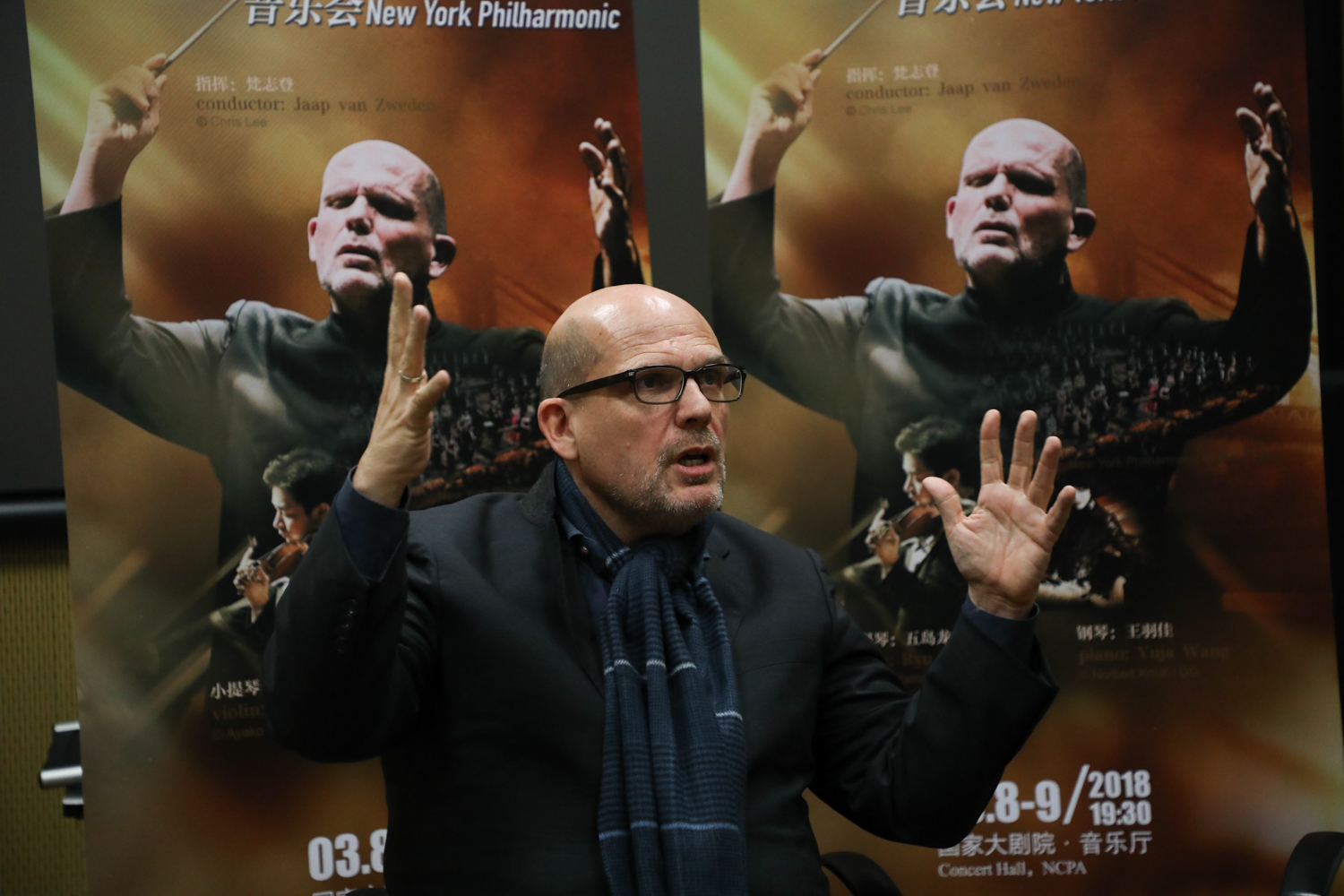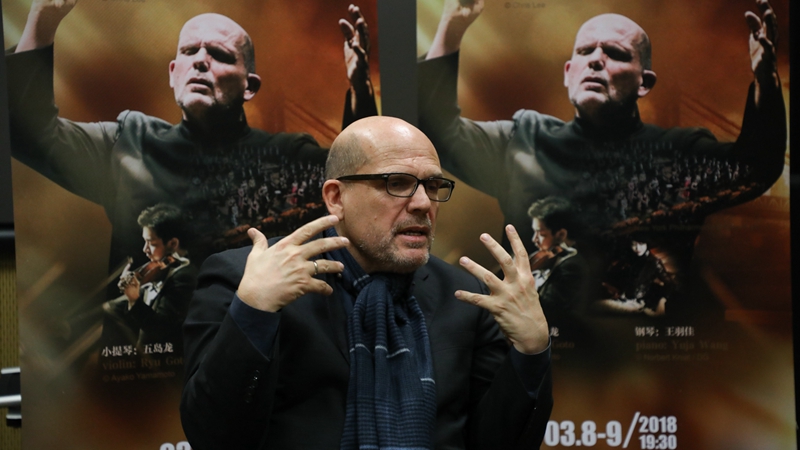Q: What do you think of the New York Philharmonic?
This orchestra, 176 years old, and is one of the greatest orchestras in the world. And as a child, when I studied at Julliard School, whenever asked as pupils from Julliard School, and we had some dollars extra in our pocket, we would go to the New York Philharmonic. So as an institute, as an orchestra, I think it’s not only one of the most famous orchestras, but also one of the best orchestras in the world. And if you look at the history of the conductors, which were there Mahler, Toscanini, Bernstein, just to name a few, I’m stepping in very big shoes there. And the only feeling I have to be here as a music director of New York Philharmonic is to be very proud, but also very humble. Because if you look at the history, and you look at the quality of the history, you just have to be very humble, and serve the music, and serve this institute with more than 100 percent of what I can do.
I’m also very happy that even before I officially start, on September 20th, as the music director, I can already present the orchestra and myself, on this very wonderful tour to the east.

Jaap van Zweden
Q: So we noticed that New York Philharmonic hasn’t been in Beijing for a very very long time, and it’s a regular guest to Shanghai. How does that come out?
I think that is a relationship which New York Philharmonic has already formed with quite some years with Shanghai. And since we’re here today in Beijing, let’s hope that we can also come more to Beijing in the future.
Q: What’s your opinion about the soloists of the two concerts?
I’m very happy to have them here. With Yuja, I have a long relationship. And I think she is one of the really fine pianists in the world. And the violinist is for me completely new, and concerning a history with him and me, there is no history. But as an organization, we’re always very happy and very open to learn about new talents, and to see if we can start new relationships.
Q: How do you work with New York Philharmonic?
The New York Philharmonic carries this DNA of all the great conductors and all the great concerts with them. From generation to generation, this has been kept with the New York Philharmonic; so when I work with them, it’s like my tradition, from where I come from, and their tradition, meet in the middle all the time. And we are having a conversation about mixing those traditions.
Jaap van Zweden
Q: What’s the discussion like when the tradition of New York Philharmonic and tradition from you meet together?
It’s not directly a discussion. It’s more about what I hear and what they bring. It’s giving and taking. Sometimes I will bring in some technical things, like taking a breath as a wind player on a different place, or maybe a little bit different phrasing in the music. And sometimes they will bring a phrasing in music that I think “wow, I can feel this is so what they want and how they have been playing it for such a long time”, that I’ll leave it alone, and I just enjoy it. So it is giving and taking in the rehearsal time. And for me, till now also, the rehearsals are even more interesting almost than the concert. Because it’s like we’re learning from each other, and we’re enjoying each other very much.
Q: What’s your interpretation of Mahler’s Symphony No. 5 and how’s that different from the orchestra’s interpretation?
I don’t think the interpretation of the fifth Symphony of Mahler is going to be so much different from me and other conductors who were with the New York Philharmonic before. If you look at the painting, it’s not like you’re watching the painting all the time. If Mahler would be the painting, he would grab you at the throat, and he will pull you in the picture, and you would become part of the picture. For a conductor, it’s very important to control the roller coaster of emotions that Mahler is giving us. So I like to give the orchestra some freedom in their emotions, and at the same time, we need to control these emotions. Now the controlling of emotions is for me a little bit different from other conductors. It’s a very thin line, of course...If we listen to ”Adagietto”, a lot of people think it’s a very sad piece. But I think, and it’s been proved by latters from Mahler, that this is not a very sad piece, but it’s actually a love declaration. So in my opinion, if we play the “Adagietto” too slow, it’s going to be self-indulgent. And you’ll miss its meaning. And the meaning is that it’s a love letter. It has to be played with a lot of warmth, not sadness. So this maybe is a little bit different from some other conductors who would make an interpretation of an extremely slow and sad movement. And I think it should not be that slow, and I think it should be a love declaration.
Q: What’s your future plans and future stops when you do an Asian tour? For example, will Beijing be part of the plan every time?
It’s always very difficult to say concrete what will happen in the future. About my experience here with Beijing and its’ very warm audience, I feel very at home here. I think that my last performance here was, for me personally, a wonderful experience, with very knowledgeable and very warm public who are really interested in what we’re bringing. So in my head, when we come back to the East, I surely would say that we would try everything that’s possible to come back to Beijing as much as we can.
Photos by WANG Xiaojing


